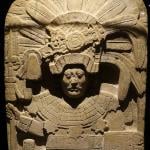These days, you hear many people substitute the word “God” with “The Universe” or “Nature.” Can Christians justifiably rename God this way?

In this series, “Renaming God,” I have addressed many of the fresh names believers have given the Divine. As part of their religious deconstruction, renegotiation, or disentanglement, many Christians have found it helpful to call God by new and creative names. Today, I will look at two names you’ve certainly heard people use as substitutes for the word “God.” Many Christians want to know if they can justifiably refer to God as their friends do—as “The Universe,” and simply as “Nature.”
Renaming God as “The Universe”
Take a look at social media, self-help books, and mindfulness culture, and you’ll hear people referring to God as “The Universe.” As an alternate name for God, this term is widespread among the Nones (those who check “none” on polls about religious affiliation) and among the spiritual-but-not-religious crowd. You may have overheard phrases like: “The Universe is trying to tell me something” or “The universe has a plan.” Where did this come from?
History of the Term
This term isn’t really new. The phrase began to emerge in the Enlightenment, as many thinkers were more comfortable thinking of God as universal laws or the cosmos itself than as a divine being. In the 19th century, Ralph Waldo Emerson and the American Transcendentalists talked about an immanent divine presence in nature and the universe. The universe, in Emerson’s thinking, was the “Over-Soul,” in which all things participate.
The New Thought movement of the late 19th and early 20th centuries began speaking of divine energy, an intelligent universe, and spiritual laws that control all things. From the 1970s to today New Age spirituality has employed the phrase “The Universe” as a pseudonym for God, saying that “The Universe will provide,” and to “trust the Universe.”
Paul in Athens
Sure, the term is popular these days—but are Christians allowed to rename God as “The Universe?” Though he didn’t exactly use the term, the apostle Paul would likely think so. In Acts 17:16-34, Paul addresses the philosophers of Athens, saying that when people search for God, they may fumble about and find God because God is not far from us. Indeed, Paul says that God is the One in whom we live and move and have our being.
Paul is hinting that God is not a deity on a faraway thrown, but the very environment of existence itself. Paul remembers God’s self-revelation to Moses as “I AM,” or the Self-Existent One, or as The Essence of All Being. So, for Moses and for Paul, God could easily be called “The Universe.”
Panentheistic Christianity and “The Universe”
Of course, if you want to split theological hairs, Christians believe that God is not just the universe, as if the definition of “God” were simply “the sum of everything that exists.” Rather, God is the Creator of the Universe. But panentheistic Christianity asserts that God is not a Creator who stands outside of the universe like a cosmic clockmaker. Instead, God created and still creates the universe from and within Godself. So, while God is more than the universe, all things that exist have their being in God.
For Paul and Moses, and for theologians like Richard Rohr, calling God “The Universe” would not reduce God to the elements of matter and energy. Instead, it would affirm that the whole universe is pregnant with the divine presence. God is, as Paul Tillich said, “The Ground of All Being.” God is the energy that enlivens the stars, the breath that awakens the galaxies, and the mystery that lies behind space and time. God is both personal and cosmic, immanent and transcendent. Renaming God as “The Universe” does not make God impersonal. Rather, it personalizes everything that exists as an expression of God.
Renaming God as “Nature”
Similar to calling God “The Universe,” renaming God as “Nature” evokes a feeling of God more as Force than Father. Yet, if “The Universe” imagines the divine among the stars and galaxies, “Nature” depicts the Eternal Presence among rivers and redwoods, moss and mice. This name brings to mind Jesus’s words in saying 77 of the Gospel of Thomas: “Split a piece of wood, I am there. Lift the stone, and you will find me there.” If the macro-God is “The Universe,” then micro-God is “Nature.”
Panentheistic Christianity and “Nature”
Historically, many strains of Christianity felt a kinship with the idea of God as “Nature.” Yet, the Enlightenment and Industrial Revolution, along with a surge of technology in the twentieth and now twenty-first centuries, have divorced us from our erstwhile intimacy with the natural world. But, with climate change and ecological disaster looming, our survival might just depend on a renewed relationship with divine Nature.
Before you bristle with righteous indignation, shattering your device and shouting “heresy!” I suggest you read your Bible. You can discover how “The heavens are telling the glory of God, and the firmament proclaims his handiwork. Day to day pours forth speech, and night to night declares knowledge.”
You might retort, “That verse says that nature talks about God—not that nature is God!” Then, I would point you back to the previous section about God as “The Universe” and remind you that everything that exists, exists within God. Indeed, there is nothing that is not made of godstuff. Then, I would invite you to read my article, “What if the Universe is Alive,” in which I further explore these ideas from panentheistic Christianity.
Throughout much of Church history, nature has been referred to as the “second book,” meaning that, alongside the Bible, nature reveals God. In fact, this second book might be equated with the Word (Logos) of John 1. Yes, this second book may be an expression of God Godself.
A Theological Shift
As followers of Christ, it’s about time we open ourselves to the same kind of theological shift that Jesus modeled. Instead of insisting on a model of God on a celestial throne, Jesus demonstrated divine oneness with The Universe and Nature by walking on water, commanding the wind and waves, speaking to fig trees, turning water to wine, using sacred earth as an instrument of healing, and reminding us that even the rocks are capable of crying out.
Jesus calls us to this sort of naturalistic religion as well. The One who cares for the sparrow calls us to be caretakers of the earth. When Jesus says, “Truly I tell you, just as you did it to one of the least of these brothers and sisters of mine, you did it to me,” we like to think that Jesus is referring to humanity bearing the image of God, or standing as a proxy for Jesus. But we get nervous when this same principle applies to the natural world. Yet, Jesus does not limit kindship with the divine to human beings. He reminds us that whatever we do to the least of his brothers and sisters—the rocks, trees, rivers, and atmosphere—we do to him. Because God, The Universe, and Nature are so bound up in one another as to be inseparable.
Renaming God as “The Universe” and “Nature”
Renaming God as “The Universe” and “Nature” is not about abandoning the God of Jesus. It’s about learning from Jesus and following the trajectory of his teachings. God is as vast as space and as close as the soil. God is both the divine Source of all life, and the elements of life itself.
In this series, “Renaming God,” we get honest about the word “God” no longer working for everybody. It’s time we quit shrinking from people who refer to the God of their Understanding as “The Universe” and as “Nature.” Instead, let’s pay attention to a truth that they’ve discovered—that God, The Universe, Nature, and you are all bound up together. We can discover more awe and wonder by embracing the oneness of all things than by parceling the cosmos out until it’s just a collection of inanimate parts.













